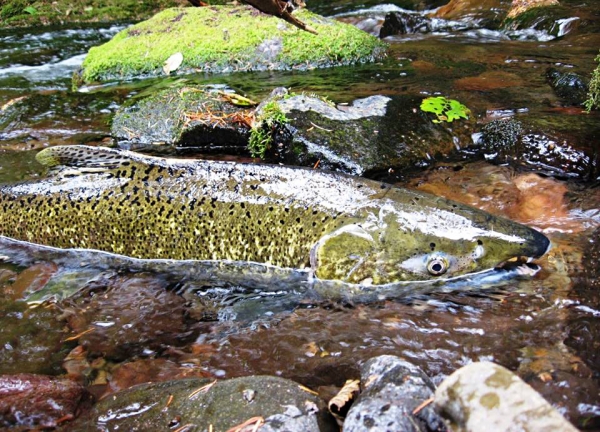Oregon State University researchers have discovered vitamin B1 produced by microbes in rivers, findings that may offer hope for vitamin-deficient salmon populations.
Findings were published in Applied and Environmental Microbiology.
The authors say the study in California’s Central Valley represents a novel piece of an important physiological puzzle involving Chinook salmon, a keystone species that holds significant cultural, ecological and economic importance in the Pacific Northwest and Alaska.
Christopher Suffridge, senior research associate in the Department of Microbiology in the OSU College of Science, and doctoral student Kelly Shannon examined concentrations of thiamine and the microbial communities in rivers of the Sacramento River watershed. Thiamine is the compound commonly referred to as vitamin B1 and is critical to cellular function in all living organisms.
Read More: Oregon State University
Chinook salmon (Photo Credit: Christopher Suffridge)


